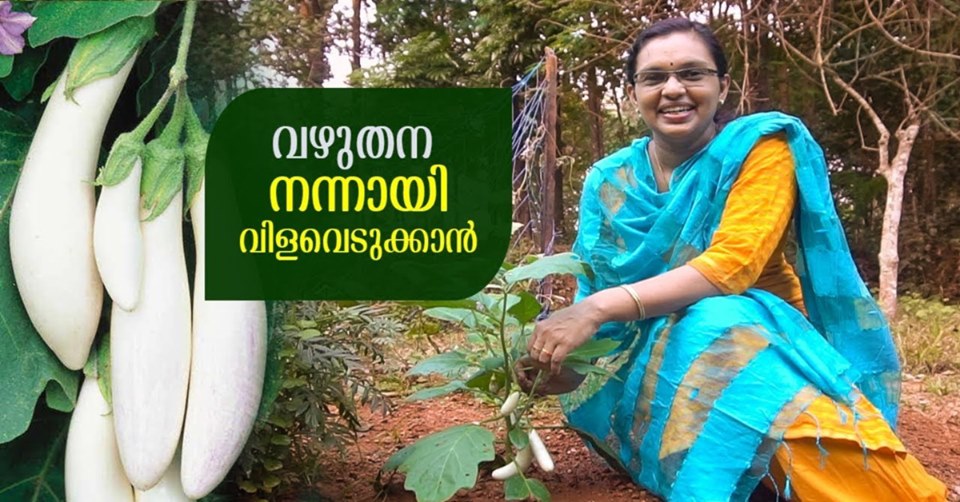White long Eggplant cultivation

White eggplants (Solanum melongena) have all the characteristics of a familiar purple eggplant, however the pores and skin is creamy white. The white varieties belong to the same species as purple eggplants. The distinction comes from the particular cultivated varieties. Growing and being concerned for white and fashionable eggplant sorts requires an extended developing season, warm temperatures, accurate soil vitamins and sufficient water. Eggplants are frost-gentle perennials hardy in U.S. Department of Agriculture plant hardiness zones 9 via 12. They are usually grown as annuals outdoor of the hardiness region range.
for watch detailed video about White long Eggplant cultivation, see below. for getting daily updates follow our facebook page and click see first option in following button. if you interested this. give this post to your friends and relatives.for more videos, subscribe now Livekerala
Growing Season and Soil Preperation
White eggplants require seventy five to 95 days among sixty two and ninety five stages Fahrenheit to mature for harvest. The nice temperature for boom is 68 to seventy eight F. Start white eggplants in spring as quickly as night time temperatures warm up to sixty eight F. Getting the plants off to a very good begin starts offevolved with top soil practise. Add natural cloth, like seasoned compost or manure, or a balanced 10-10-10 fertilizer to the soil. Use a 2- to 4-inch layer of natural count number spread over the lawn mattress or, use half to one pound of fertilizer for each 50 rectangular toes of the garden. Dig soil the amendments into the top 8 to twelve inches of the garden bed. Digging within the amendments also loosens the soil in education for planting.
Seeds and Starts Planting and Care
Eggplants can be grown from seed or from starts. You can normally purchase widespread pink eggplant starts at nurseries or markets, however you will generally only have the ability to buy white eggplants from seed companies. Start seeds indoors in seed flats six to 8 weeks before planting out inside the lawn. Plant eggplant seeds 1/4 inch deep. The seeds germinate most reliably while the soil temperature is continually among 75 and eighty five F. A seed heating pad will offer bottom warmth and modify the soil temperature. Eggplant seeds take seven to 14 days to germinate. Seeds and growing seedlings require constant moisture to keep the soil damp but now not soggy. When transplanting the begins into the garden bed, space the plants 18 to 24 inches aside. Starts that are 6 to eight inches tall are satisfactory for transplanting.
Growing Season Care
Full vibrant sun, as a minimum six hours in line with day, and constant moisture is crucial for growing healthful eggplants. Keep the soil moist with deep, slow waterings weekly or more often for the duration of dry weather. Eggplant vegetation need about 1 inch of water according to week, however if the soil feels dry and the climate is hot, add more water. If you amended the soil before planting, you might not need to provide your eggplants additional fertilizer. Pull big weeds by hand or use a hoe or other shallow weeder to put off weed seedlings as quickly as they seem. Avoid gear that cut deep into the soil due to the fact eggplants have shallow roots which might be broken by means of deep cultivation. White eggplants are equipped to reap while they may be between 2 and six inches in diameter.
Pests and Pest Management
Like different tender vegetables, white eggplant plants are vulnerable to an expansion of not unusual bugs. Green peach aphids (Myzus persicae) and spider mites (Tetranychus spp.) can infest eggplant flora. Flea beetles (Chrysomelidae) eat small spherical holes within the plant leaves and tend to affect young plant life. Inspect the plant life regularly with a magnifying glass, making sure you appearance below the leaves wherein bugs generally tend to accumulate. Horticultural oils and cleaning soap sprays help manipulate insect infestations. When using insecticides, continually comply with the cautions and instructions of the package label.
White Eggplant Cultivars and Ornamental Varieties
Some white eggplant cultivars to strive encompass “Albino,” “White Beauty,” “Casper,” “Easter Egg,” “Cloud Nine,” “Tango” and “Ghostbuster.” The ornamental white eggplant (Solanum ovigerum) belongs to the same genus because the safe to eat sorts, however is a extraordinary species. It produces showy, egg-fashioned white end result which can be visually placing, however inedible. Ornamental white eggplants want the same care as popular eggplant varieties.


